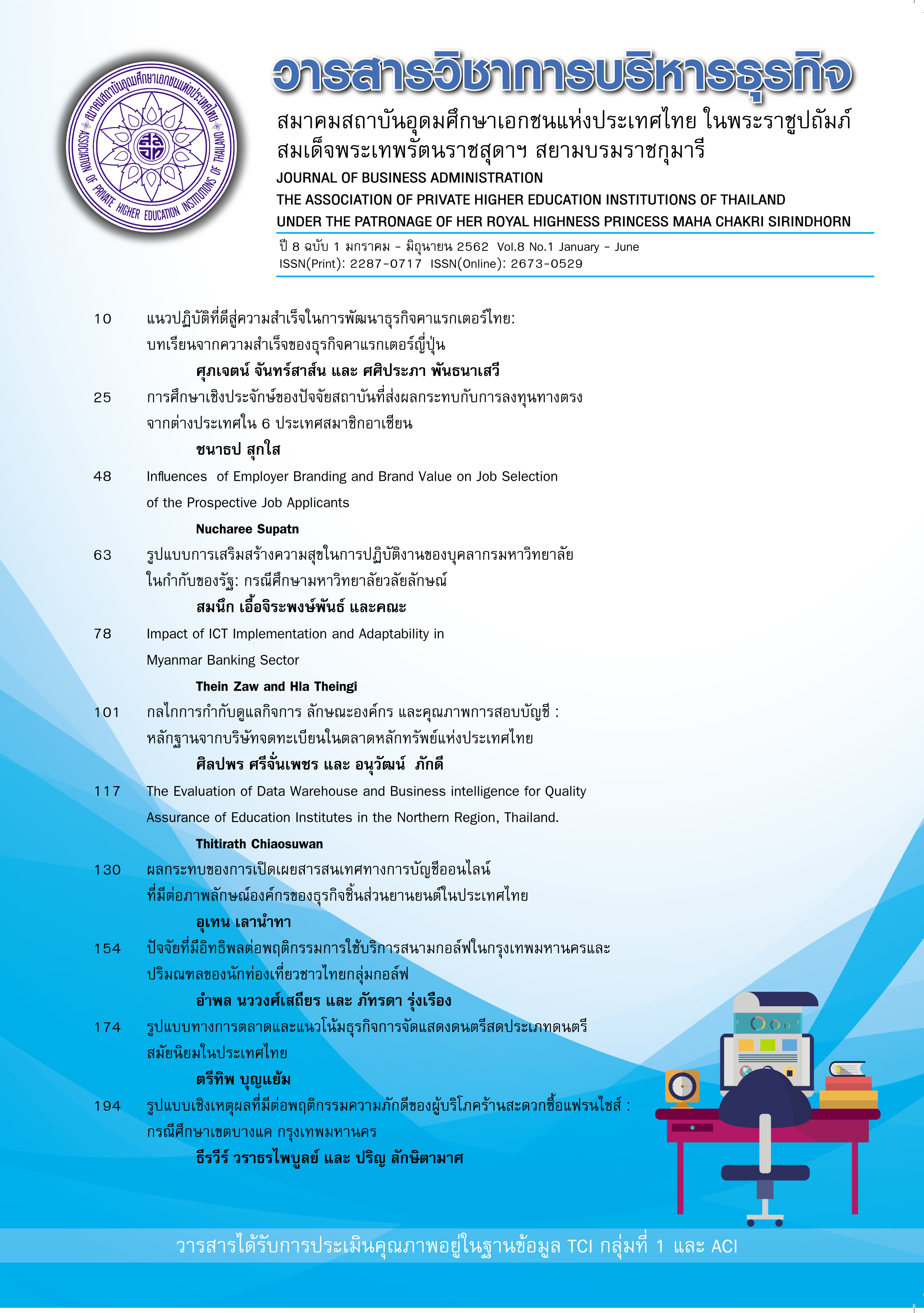The Empirical Study of Institutional Factors Affecting the Foreign Direct Investment (FDI) in 6 ASEAN Countries
Keywords:
FDI, ASEAN, Social Institutions, Economic InstitutionsAbstract
This empirical study is a country-based analysis aiming to investigate how institutional
factors (primary economic and social determinants) affect the FDI inflows in six ASEAN countries,
namely Indonesia, Malaysia, the Philippines, Singapore, Thailand, and Vietnam during 1990-2016.
It uses a mixed method research employing a pool-data multiple regression technique to analyze
the significant determinants of FDI at country level from a holistic approach. The findings found that,
on one hand, social institutions affected inward FDI in several countries such as Malaysia, Singapore,
the Philippines, and Vietnam. On the other, economic institutions had a significant correlation to
the flows of FDI in most countries, particularly through the proxies of Government Effectiveness
and Control of Corruption. However, conventional socio-economic factors, such as GDP Growth,
GDP per Capita and Labor Forces could still explain the movements of FDI in some countries.
This paper contended the flows of FDI, in most ASEAN countries, are not only motivated by
economic institutional quality, but also robust social institutions (or rich social capital endowment)
in a society. The results are consistent with previous scholarly works advocating a crucial role of
institutions in determining positive economic outcomes and trade flows. This paper is concluded
by suggesting that an improvement of institutional quality among ASEAN countries is vital to sustain
the current flows of FDI and related trade attractiveness. Good institutional environments would
also lead to a friendlier business environment, strengthens a trustworthy society and increases
national competitiveness as a whole

Downloads
Published
How to Cite
Issue
Section
License
บทความที่ลงตีพิมพ์ในวารสารวิชาการบริหารธุรกิจ สมาคมสถาบันอุดมศึกษาเอกชนแห่งประเทศไทยต้องเป็นบทความที่ไม่เคยได้รับการตีพิมพ์เผยแพร่ หรืออยู่ระหว่างการพิจารณาตีพิมพ์ในวารสารอื่นๆ การละเมิดลิขสิทธิ์เป็นความรับผิดชอบของผู้ส่งบทความโดยตรง

